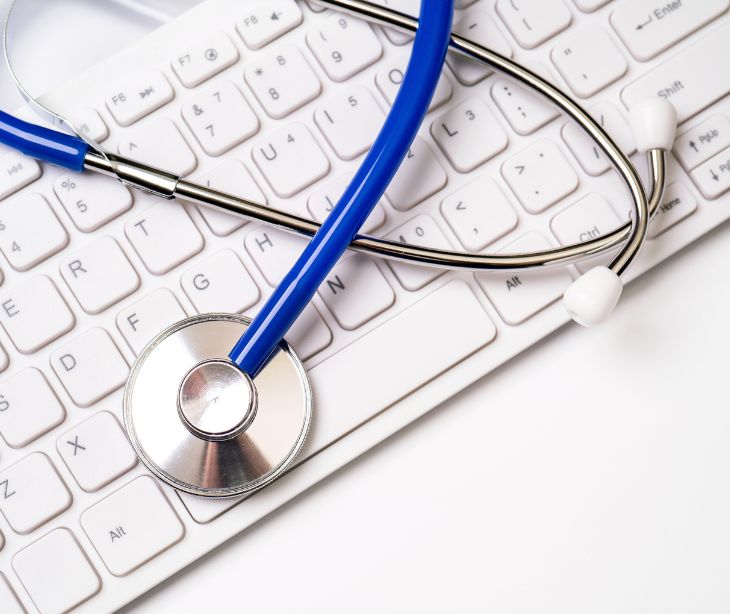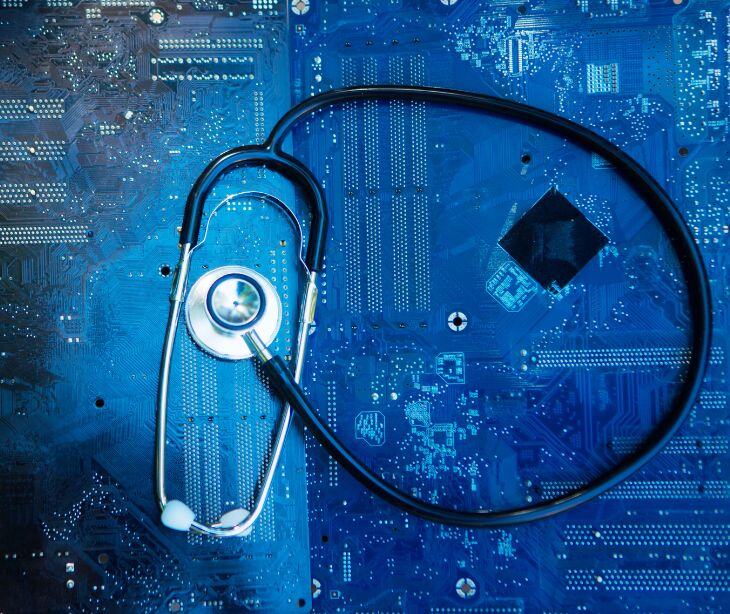
Healthcare data breaches significantly threaten the confidentiality and security of sensitive patient information. The digital transformation of the healthcare industry has made it more vulnerable to external and internal attacks. Hacking incidents and unauthorized internal disclosures are the leading causes of healthcare data breaches.
To enhance data confidentiality and mitigate the financial impact of breaches, healthcare organizations must prioritize security measures such as cybersecurity protocols, employee training, and secure disposal practices.
The digital transformation of the healthcare industry
The Internet of Medical Things (IOMT) is a vital component in the digital transformation of the healthcare industry. Healthcare organizations collect and store sensitive customer data on network servers to ensure accessibility and facilitate patient care. However, the convenience of these digital systems also introduces vulnerabilities that unauthorized users can exploit.
Software vulnerabilities, security failures, and human error can lead to data breaches in the healthcare industry. External hackers or internal employees can cause these breaches with malicious intent. The theft, loss, or disclosure of protected health information (PHI) can have severe consequences, including compromised patient care and financial losses.
Related: Best Practices for securing medical IoT devices
The alarming rise of healthcare data breaches
Data breaches in the healthcare industry have increased in recent years. According to reports, the total number of individuals affected by healthcare data breaches from 2005 to 2019 was 249.09 million. Of these, 157.40 million individuals were affected in the last five years alone. The healthcare industry has faced the highest number of breaches compared to other industries.
The value of healthcare data makes it an attractive target for extortion. A complete record file of a single patient can fetch hundreds of dollars on the dark web. This high value, coupled with the increasing frequency and magnitude of healthcare data breaches, highlights the urgent need for improved data confidentiality measures in the healthcare industry.
Types and causes of healthcare data breaches
Healthcare data breaches can be classified into different types based on the nature of the attack. The two most prevalent types of breaches in the healthcare industry are hacking/IT incidents and unauthorized internal disclosures.
Hacking and IT incidents
Hacking incidents involve cyber-attacks aimed at gaining unauthorized access to confidential healthcare data. These can be malware attacks, ransomware attacks, phishing attempts, or other malicious activities. Hacking incidents have been the leading cause of healthcare data breaches, accounting for the most exposed records.
Unauthorized internal disclosures
Unauthorized internal disclosures occur when employees or internal agents of healthcare organizations inappropriately access or disclose PHI. These breaches can result from privilege abuse, unauthenticated access or disclosure, improper disposal of sensitive data, or unintentional sharing of confidential information with unauthorized parties.
Theft or loss and improper disposal
Theft or loss of physical devices such as laptops, hard disks, or other portable devices can also lead to the exposure of PHI. Improper disposal of unnecessary but sensitive data is another common cause of healthcare data breaches. In these cases, sensitive information is not properly destroyed, allowing unauthorized individuals to retrieve and misuse the data.
Related: Types of cyber threats
Locations of breached healthcare information
Healthcare data breaches can occur from locations where PHI is stored or accessed. These locations include electronic medical records (EMRs), laptops, desktop computers, paper documents, network servers, email accounts, and other portable electronic devices.
An analysis of breached locations reveals that paper documents, including physical files and films, are the most susceptible to breaches. Paper documents accounted for the highest number of breached incidents in the healthcare industry. Email accounts and network servers were also frequently targeted by attackers.
The financial impact of healthcare data breaches
Data breaches in the healthcare industry have significant financial implications for individuals, organizations, and countries. The average cost of a data breach in the healthcare industry is $6.45 million, higher than the average cost in any other industry.
The financial impact of healthcare data breaches has been increasing over the years. The average cost of a breached record has risen by 45.91% from $294 in 2010 to $429 in 2019. This upward trend emphasizes the need for security measures to protect healthcare data and mitigate the financial consequences of breaches.
Read more: Summary of IBM's Data Breach Report
FAQs
What is a data breach?
A data breach is an incident where sensitive, protected, or confidential data is accessed, disclosed, or stolen by unauthorized individuals. This can include personal information such as names, social security numbers, credit card details, and medical records. Data breaches can occur through various means, such as hacking, malware attacks, insider threats, or inadequate security measures.
Can legal action result from a data breach?
Yes, legal action can result from a data breach, as affected individuals or organizations may sue for damages caused by the breach.
How can healthcare organizations prevent data breaches?
Healthcare organizations can reduce the risk of data breaches by implementing strong cybersecurity measures, conducting regular security training for employees, and using encryption to protect sensitive data.
What should a healthcare organization do immediately after discovering a data breach?
Upon discovering a data breach, a healthcare organization should contain the breach, assess the scope of the impact, notify affected individuals and relevant authorities, and begin an investigation to understand how the breach occurred and how to prevent future incidents.
Subscribe to Paubox Weekly
Every Friday we'll bring you the most important news from Paubox. Our aim is to make you smarter, faster.




